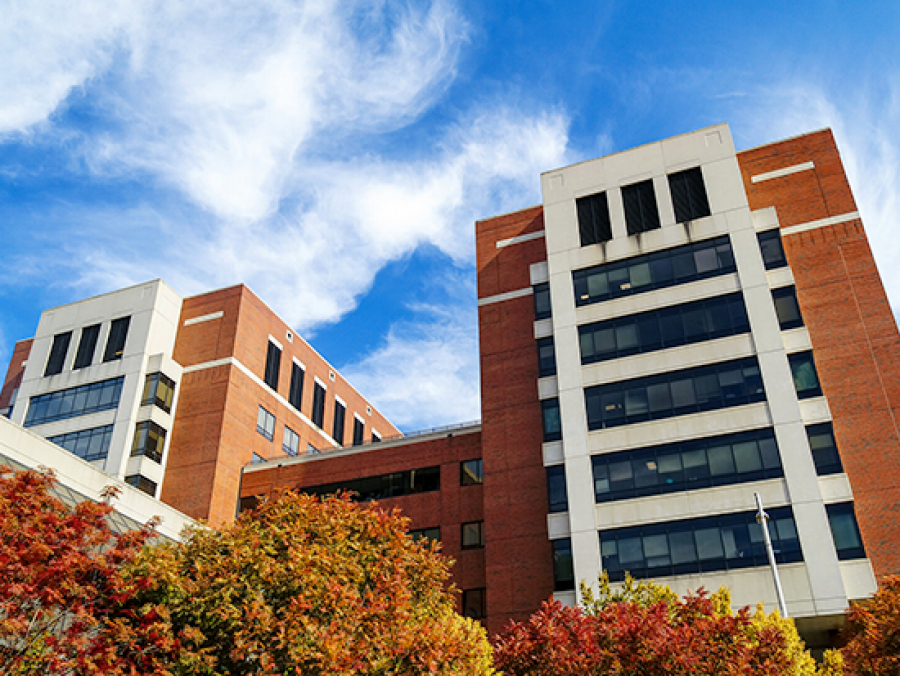|
|
 |
Dr. Schoeb received his B.S. in pre-veterinary sciences and D.V.M. from Oklahoma State University. He then did a residency in veterinary pathology and earned a M.S. in veterinary pathology. He entered the UAB graduate program in Molecular and Cellular Pathology sponsored by the Departments of Comparative Medicine and Pathology, earning a Ph.D. in pathology. Dr. Schoeb joined the UAB Department of Genomics and Pathobiology in 2000. He is currently in the Department of Genetics (Genomics Division) and Associate Director of the Comparative Pathology Laboratory in the UAB Animal Resources Program.
Dr. Schoeb’s research focuses on gnotobiotic and specific pathogen-free (SPF) rodents and the phenotyping of mutant mice. He has participated in a wide variety of projects involving evaluation of disease expression in rodents and other species. His current interests are in development of gnotobiotic mouse models of inflammatory bowel disease and identification of specific intestinal bacteria involved in initiation and/or perpetuation of intestinal inflammation in these models.
Selected Publications
- McGinn, T.M., Tao, B., Cartner, S., Schoeb, T., Davis, I., Ratner, L. and Fultz, P.N. Association of primate T-cell lymphotropic virus infection of pig-tailed macaques with high mortality. Virology 304:364-378, 2002.
- Flanagan, E.B., Schoeb, T.R. and Wertz, G.W. Vesicular stomatitis viruses with rearranged genomes have altered invasiveness and neuropathogenesis in mice. J. Virol. 77:5740-5748, 2003.
- Barlow, S.C., Collins, R.G., Ball, N.J., Weaver, C.T., Schoeb, T.R. and Bullard, D.C. Psoriasiform dermatitis susceptibility in Itgb2tm1Bay PL/J mice requires low level CD18 expression and at least two additional loci for progression to severe disease. Am. J. Pathol. 163:197-202, 2003.
- Goetzman, E.S., Tian, L., Nagy, T.R., Gower, B.A., Schoeb, T.R., Elgavish, A., Acosta, E.P., Saag, M.S. and Wood, P.A. HIV protease inhibitor ritonavir induces lipoatrophy in male mice. AIDS Res. Hum. Retroviruses 19:1141-1150, 2003.
- Barlow, S.C., Xu, H., Weaver, C.T., Lindsey, J.R., Schoeb, T.R. and Bullard, D.C. Development of dermatitis in CD18-deficient PL/J mice is not dependent on bacterial flora, and requires both CD4+ and CD8+ T lymphocytes. Int. Immunol. 16:345-351, 2004.
- Pastva, A,, Estell, K., Schoeb, T.R., Atkinson, T.P. and Schwiebert, L.M. Aerobic exercise attenuates airway inflammatory responses in a mouse model of atopic asthma. J.Immunol. 172:4520-4526, 2004.
- Woolard, M.D., Hodge, L.M., Jones, H.P., Schoeb, T.R. and Simecka, J.W. The upper and lower respiratory tracts differ in their requirement of IFN-gamma and IL-4 in controlling respiratory mycoplasma infection and disease. J. Immunol. 172:6875-6883, 2004.
- Kevil, C.G., Hicks, M.J., He, X., Zhang, J., Ballantyne, C.M., Raman, C., Schoeb, T.R. and Bullard, D.C. Loss of LFA-1, but not Mac-1, protects MRL/MpJ-Faslpr mice from autoimmune disease. Am.J. Pathol. 165:609-616, 2004.
- Tu, A.-H., Clapper. B., Schoeb, T.R., Elgavish, A., Zhang, J., Liu, L., Yu, H. and Dybvig, K. Association of a major protein antigen of Mycoplasma arthritidis with virulence. Infect. Immun. 73:245-249, 2005.
- Mrug, M., Li, R., Cui, X., Schoeb, T.R., Churchill, G.A. and Guay-Woodford, L.M. Kinesin family member 12 is a candidate polycystic kidney disease modifier in the cpk mouse. J. Am. Soc. Nephrol.16:905-916, 2005.






